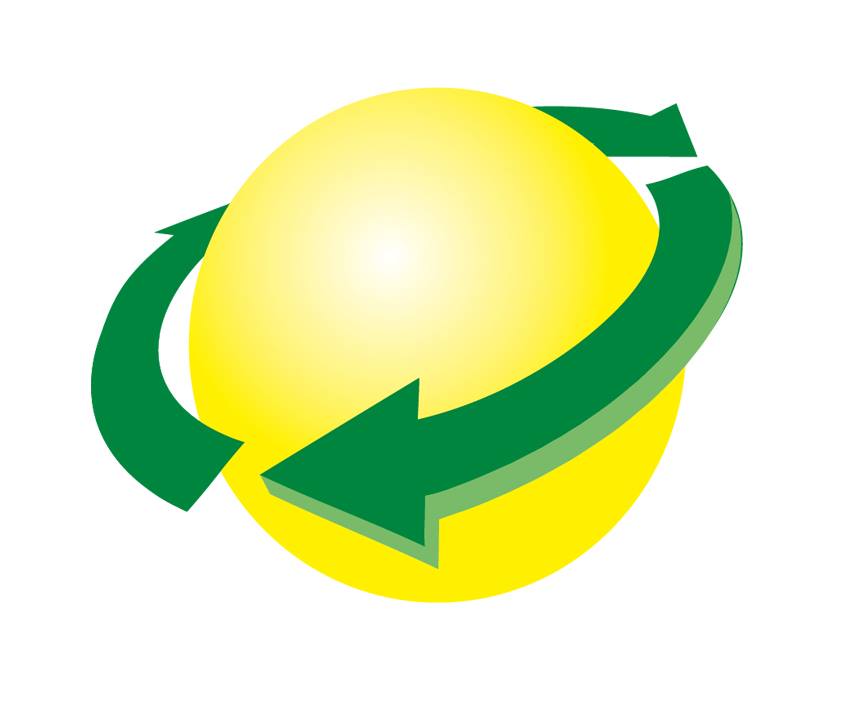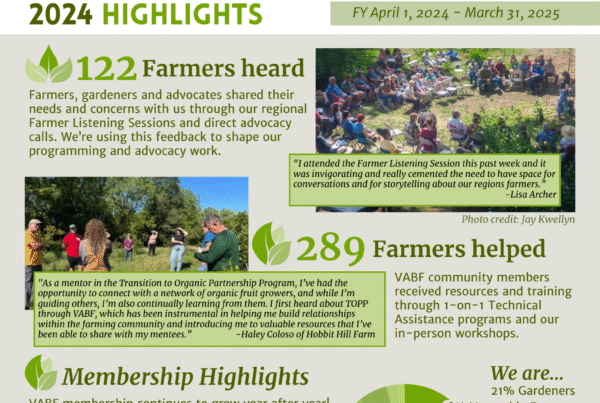Review of NRCS National Conservation Practice Standards
Public input requested. Deadline April 25
In compliance with the recently passed 2018 Farm Bill, the USDA Natural Resources Conservation Service (NRCS) has initiated an expedited review and revision of the National Conservation Practice Standards. These Standards provide the criteria and guidance for State level adaptation and implementation of conservation practices under the Environmental Quality Incentives Program (EQIP) and the Conservation Stewardship Program (CSP). The Farm Bill mandates a thorough review and (as needed) revision of all of the Practice Standards over the coming five years.
At this time, NRCS has posted a Federal Register notice asking for initial feedback from the public on all 169 Conservation Practice Standards over the next 45 days. This is one tall order! The National Sustainable Agriculture Coalition (NSAC) is in the process of prioritizing Standards with the greatest potential impact on soil health, water quality, and wildlife for in-depth review and feedback to NRCS.
Note that this is not the only chance we will have to shape these revisions. After the initial public input, the agency will address smaller groups of standards in greater depth, which will provide additional opportunities for input. For each batch, NRCS will propose revisions, and post another Federal Register notice announcing a public comment period on the proposed revisions. The current notice gives us an opportunity to provide input before NRCS begins to draft revisions.
There are two ways you can take part in this important effort:
- Forward your input to me (schonbeckmark@gmail.com), including any direct experience you have had as an EQIP or CSP participant or applicant with any of the Conservation Practices and the Standards, criteria, and guidance (“considerations”) for implementation thereof. Regardless of whether you have participated in one of these programs, your input on the efficacy (or lack thereof) of any of the Practice Standards in achieving important soil health, water quality, or other conservation / environmental objectives would be most valuable. I will consider your input in working with NSAC to develop their comments, and also in developing my own comments as an individual.
- Communicate with the Virginia State NRCS Office and Virginia State Technical Committee, contact State Conservationist Jack Bricker or Executive Assistant Kathleen Anderson, NRCS, 1606 Santa Rosa Road, Suite 209, Richmond, VA 23229, tel 804-287-1638, e-mail (Kathleen) Anderson@va.usda.gov. Comments specific to Virginia might be especially appropriate to share with our state NRCS office.
- Submit your own comments directly to NRCS via the Federal eRulemaking Portal website: go to http://www.regulations.gov., and search for docket ID NRCS-2019-0003.
- You can view the Federal Register Notice online here.
- You can view the complete list of Conservation Practice Standards online here.
OFRF Webinar on Soil Health, Climate Change, and Organic Farming
March 20, 2:00 pm
On Wednesday March 20 (yes, next week!), the Organic Farming Research Foundation (https://ofrf.org) will present a webinar entitled Organic Practices for Climate Mitigation, Adaptation, and Carbon Sequestration. The webinar will begin at 2:00 pm Eastern Daylight Time and will continue until about 3:30 pm. This will be the eighth presentation in the Soil Health and Organic Farming Webinar Series. Earlier presentations can be viewed from the eOrganic archive.
After a brief summary of climate change impacts on agriculture, and agriculture’s contributions to greenhouse gas emissions, the webinar will explore in greater depth the potential for sustainable organic farming and ranching to become part of the climate solution in three ways:
- Sequestering carbon in the soil by building stable organic matter throughout the soil profile
- Reducing emissions of nitrous oxide from fertilized soils and of methane and nitrous oxide from livestock production systems.
- Enhancing the resilience of farms and ranches to weather extremes (climate adaptation).
Guidance on specific organic practices and systems to maximize long term carbon sequestration, mitigate emissions, and prepare for climate disruptions already underway, will be offered.
To register for next Wednesday’s webinar or view past Webinars from this series and many other projects and programs, visit the webinar listing in the Extension Organic Resource Area, https://articles.extension.org/pages/25242/webinars-by-eorganic.
USDA Listening Sessions
In preparing to implement the many new and modified programs and provisions in the 2018 Farm Bill, the USDA is conducting a series of Listening Sessions to offer stakeholders and the general public to provide input on how to implement key programs in a way that meets legislative intent and maximizes benefits to farmers, rural communities, natural resources, and society. The first Listening Session (on Monday, February 25) focused on NRCS conservation programs, Farm Services Agency (which administers the Conservation Reserve Program), and the Risk Management Agency (crop insurance and other related programs). Written comments were accepted through the following Friday, March 1.
Alyssa Charney of the National Sustainable Agriculture Coalition (NSAC) delivered oral comments at the Listening Session itself, focused on conservation. NSAC and its member groups also worked together to develop and deliver more in-depth written comments. For more, see http://sustainableagriculture.net/blog/usda-listening-sessions-farm-bill-2019/.
Two additional listening sessions will take place in the coming weeks:
- Rural Development, March 14, at 2:00 – 4:00 pm, webinar format. Registration is required to participate. Rural Development will accept written comments through March 29, 2019, please submit to Innovation@osec.usda.gov.
- Research, Education, and Economics – March 21 – format and other details TBA.
President’s 2020 Budget Slashes and Burns Agriculture
Once again, the Trump Administration has slated farmers, conservationists, the nation’s topsoil and water resources, and food-insecure families for major downsizing in its 2020 budget proposal. A few specifics include:
- Cut Sustainable Agriculture Research and Education (SARE) funding by half.
- Eliminate the Conservation Stewardship Program.
- Snip 10% out of NRCS funds for Conservation Technical Assistance.
- Cuts Food Safety Outreach Program (FSOP) funding by half – right when small scale producer farmers need it most as the new produce safety regulations go into effect.
- Slashes Supplement Nutrition Assistance Program (SNAP) by $17 billion.
These figures are telling our farmers, hardworking Americans struggling to feed their families, and the essential life in our soils: “then let them eat cake!” Yet, there are pockets of generosity:
- An $85 million increase in the Agriculture and Food Research Initiative (AFRI).
- $100 million to restore agricultural research infrastructure.
- $25 million to help USDA relocate the Economic Research Service and National Institute for Food and Agriculture – a move vigorously opposed by NSAC and most agricultural professionals and other stakeholders.
One actual bright spot: the budget axe does go after wasteful crop insurance and commodity subsidies by proposing reforms that would close loopholes that currently allow the largest and richest operations to garner severalfold the statutory payment limit.
For more on this, visit http://sustainableagriculture.net/blog/fy2020-skinny-budget/.
The good news is that Congressional appropriations committees do not have to hew closely to the President’s recommended budget, and often do not. For example, Senate and House appropriators recently reached agreement on funding for Fiscal Year 2019 including:
- $37 million for SARE (highest ever)
- $6 million for Organic Transitions (up $1 million from 2018 and highest ever)
- $8 million for FSOP (up $1 million from 2018)
- Full funding (no changes) in the NRCS working lands programs, EQIP and CSP.
- A small increase in Conservation Technical Assistance funding.
- Stable or increased funding for local foods, rural development, and beginning, veteran, and socially disadvantaged farmers and ranchers.
For more on the 2019 funding levels, visit http://sustainableagriculture.net/blog/fy2019-appropriations-agriculture/.
By Mark Schonbeck






